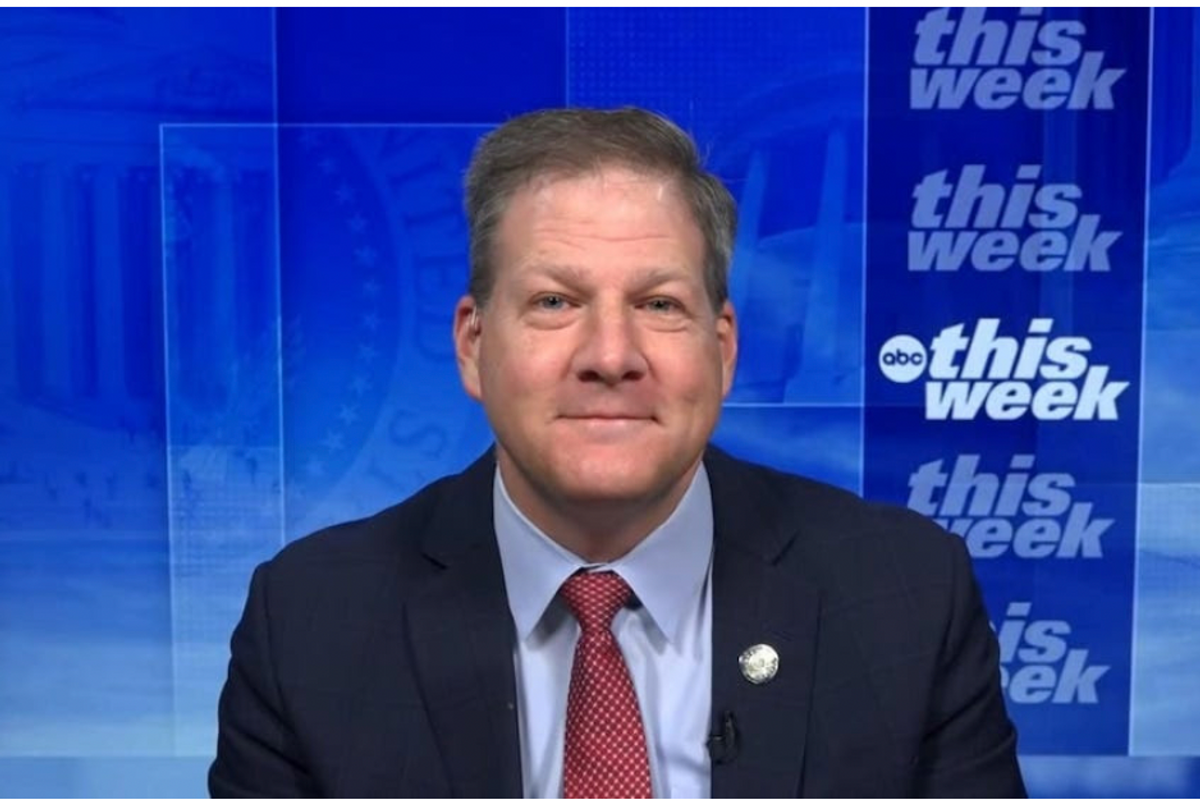
In an interview Monday with MSNBC’s Chris Hayes, Susan Sarandon said that it was a “legitimate concern” that Bernie Sanders’s most passionate supporters wouldn’t vote for Hillary Clinton, should she be the Democratic Party’s nominee. Then, she said she could see the logic in voting for Donald Trump over Hillary Clinton, because “some people feel Donald Trump will bring the revolution immediately.”
Hayes clarified — did Sarandon mean “the Leninist model” of voting for Donald Trump? Picking the worst possible candidate in recent history in order to “heighten the contradictions” between Trump’s decisions in office and the newly heightened potential for a real “revolution”?
“Yeah, yeah, yeah,” Sarandon responded. “Some people feel that.”
This campaign cycle has seen the Democratic Party maintain some level of stability, even though it’s been thoroughly shaken up by a successful insurgent candidate and the huge viral movement behind him. Compared to our Republican friends, Democrats — even new, energized Democrats — have kept a level head and our eyes on the ball: winning in November. And not only the presidency. If Donald Trump is the Republican nominee for president, which looks likely, we could take the Senate and even, maybe, the House of Representatives.
But if Sanders supporters, including myself, take our cues from Susan Sarandon, we can blame her ideology for the upcoming Trump presidency. And more than that, we can blame her ideology for the dysfunction of our politics.
Though Sarandon took to Twitter after her remarks to clarify that she would “never support Trump for any reason,” her ideology remains the same: that Bernie Sanders represents a “political revolution” against “establishment” politics, and that this establishment itself is a greater threat to American democracy than even the Republicans’ most extremist views.
If you believe this, so be it. But I would hope you consider a few things before doing so.
Do you know your options for your local congressional race? Who most closely aligns with your views? What about among candidates for the Senate? For governor?
These are the real “establishment.” These are what Bernie Sanders would need, as president, in order to ensure his über ambitious legislative agenda has a snowball’s chance in New York’s unusually warm winter.
When Bernie Sanders talks about a “revolution,” it is this: a revolution in political pressure on all levels of government. He wants to do more than he was ever able to do as an independent senator from Vermont.
Winning the presidency would be a huge mandate, but what if Sanders loses? Susan Sarandon, to take her word for it, wouldn’t mind if Sanders supporters “brought on the revolution” by electing Donald Trump.
These are two completely different revolutions.
One requires democratic engagement, vigorous debate, political organization, and systematic, long-term effort.
The other is a vain hope that the people most at risk of a Trump presidency — immigrants, refugees, Muslims, the poor, women — would be so at risk as to prompt some larger push back. To be honest, I really don’t know what kind of “revolution” this is. Protests in the streets? Tea Party obstructionism?
Surely, something will happen if Donald Trump becomes president and makes good on his promise to find and deport upwards of 11 million people, ban Muslims from entering the United States, and start trade wars with China and Mexico. It’s simply unavoidable.
But I would hope whatever happens, should Bernie Sanders lose the nomination — or win it and lose the presidency — fits his definition of revolution. We need a political revolution. Americans are traditionally very bad voters. We’re typically disengaged from politics. Our political media doesn’t hold our political leaders accountable, and neither do their constituents.
If we accept Sarandon’s definition of revolution, which requires installing what would be the worst president in a century, surely, none of that will change.
If we accept Bernie’s definition, we can have it all, even if he loses: a Democrat in office, and millions upon millions of politically engaged Americans holding her feet to the fire.


